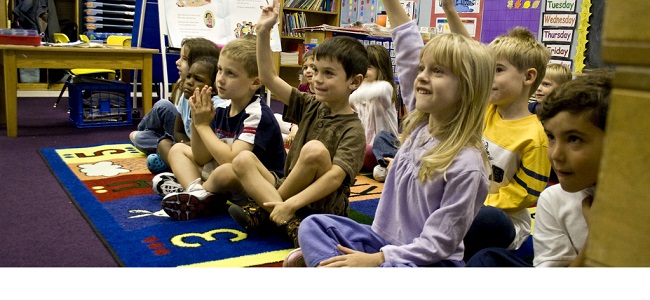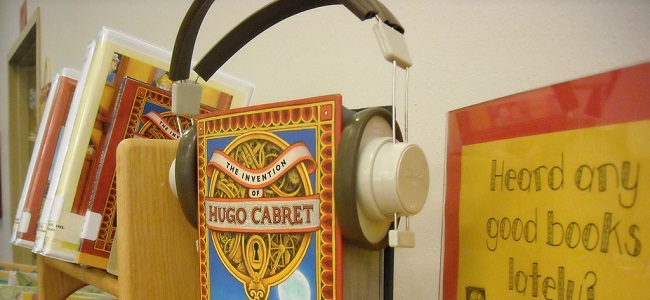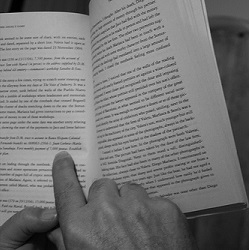Sometimes, no matter how hard you try to engage students with an interesting lesson, their minds still wander. San Diegan teacher Kriscia Cabral considers laughter to be an important part of any school day, and a vital element in keeping pupils present.

The great E.E. Cummings once said, “The most wasted of days is one without laughter.” Laughter in and out of the classroom is sunshine to our souls. It is a powerful tool and can be ignited when shared with your students. How can you empower students with laughter? Give them the opportunity to laugh out loud!
Back in January, my school set upon a new initiative. The marking of core writing skills – that is, spelling, punctuation and grammar (or SPAG as us educators, who never shy away from a good acronym, like to call it) – was to be implemented across all departments. No longer just a proviso of the English faculty, now History teachers would have to check for syntactical errors in their students’ essays; Science teachers would have to ensure that methodologies and conclusions which came to them did so with the required requisite of full-stops and capital letters; Geography teachers would have to supervise not just the correct spelling of ‘oxbow lake’, but also the correct spelling of all the words which surrounded it in their pupils’ books.
Most staff rooms will be home to a widely-diverse range of reading habits and tastes; as adult readers, we all know there’s no such thing as good or bad readers – or in fact good or bad books. We know it’s not about measuring people by their reading skills, or the number of prizewinning books they read. It’s simply about what we each, as individuals, like to read and how it makes us feel. We can have the most dismal reading experience from a book that has been praised to the roof tops – and equally we can have the best experience from something that others might consider to be ‘trashy’, ‘lightweight’ or ‘inferior’. In the end, the best book is the world is the one we, ourselves, like best – and that can change by day, by week or by year.
Different students have different ways of learning, and this is absolutely true for literacy. Jules Daulby, whose wheelhouse includes SEN and English teaching, discusses how a certain amount of pupils are best learning with their ears...

In order to be an effective reader, two skills are required:
One great part of receiving an education is exploring the world of fiction. James Harlan gives his five best examples for inspiring pupils to put pen to paper (or fingertips to keys…).

“An avenue for learning” – this is the primary offer of most schools. Yet, without bringing it to the fore, catalysing talents is actually another part of the package. The school environment has the immense potential to impact the development of its pupils’ talents, particularly, their gift at writing. The same analogy applies to us teachers.
Games based learning is an area that offers education fascinating possibilities, and different methods are explored daily. However, are certain games, such as Candy Crush, based on a format too addictive to be used in schools? ReadingWise writer Dave Waddell discusses the matter, and considers how games can be used for promoting literacy.

The relative virtual popularity of Dana Smith’s This is what Candy Crush does to your brain - recently posted on the Guardian’s online Notes and Theories science desk – may mean one or two things: either people are genuinely interested in the idea that it is, as Smith says, a by-design addictive game; or any article with the words ‘candy’ and ‘crush’ in its title is certain to get a degree of misdirected traffic.
House of Cards, Game of Thrones, Mad Men, Boardwalk Empire, True Detective… For adults, there are a huge amount of must-see television programmes available at the moment, and it’s getting much easier to miss giving yourself some time to read. For younger viewers, the same problem applies, with a bevy of kids-programming channels (not to mention Netflix) easily accessible. Recent research has shown that reading is on the decline, and Elliot Simmonds can’t stress enough how important reading is for growing minds.

Last week, new research was published by Booktrust (and later featured by the Guardian and the BBC among others) which suggests that Britain is a nation divided on reading habits. At this point, in the interest of full-disclosure, I should say that I am a voracious reader. I read anything, and I read a lot – despite recently being asked if I was a ’14 year old girl’ because I’m halfway through The Hunger Games.
For this reason, I found it quite distressing that almost half the nation would prefer to watch television than read a book and that even more (56%) said that the internet and computers will replace books within two decades. Reading is exercise for the brain; utilising memory, imagination and generally increasing vocabulary and improving the way in which people express themselves. Reading books is a great way to step away from work and school, which involves an increasing amount of time spent looking at screens for many of us.
As evidenced by Adele Devine’s superb piece on teaching Shakespeare, there’s clearly something about the playwright’s work that gets teachers all fired up. With the birthday of William Shakespeare getting closer, teacher and manager of Arts on the Move Alison Chaplin brings us her finest tips on enthralling your class in this world, and having a great time while you’re at it.

This April we commemorate Shakespeare’s 450th birthday, and hundreds of primary school children across the country will join in this momentous occasion by taking part in organised celebrations. However, a great number of primary school teachers already celebrate Shakespeare in their own way. Schemes of work that explore Macbeth or Romeo & Juliet are already fully integrated into the Primary Framework for Literacy objectives in many primary schools, with teachers attacking the stories, characters and themes with gusto. But for every teacher who loves tackling Shakespeare, there are many who don’t. The literary experiences we have as children, when we first encounter the beautiful Bard, can either make us or break us for life. But, fear not, for help is out there…
My advice when approaching Shakespeare in the primary school is to introduce it by stealth. Find ways of catching the attention of the children and drawing them in to the whole story. For example, describe a specific setting for a scene from a play – a good one is Act 3 Scene 3 from Macbeth - the murder scene*. As far as setting descriptions go there isn’t much information to be found in the text, but some clues are there and what isn’t specified you can surmise (or make up!): it’s night time; a faint torch light can be seen, held by an unseen hand; the setting is a park near the palace, there are trees casting shadows, low bushes and rocky outcrops; the sky is full of rain clouds; it’s spooky.
Plenty of pupils love to write - why wouldn’t they? However, many of the UK’s schoolchildren have what David Mitchell, deputy head of Heathfield Primary School, aren’t getting anywhere near the audience that they should be.

As published in the September 2013 edition of our magazine.
After a grueling week with your wonderful Year 6 class surpassing their non-chronological reports, you think you have aced it! They have chosen their topic of choice, and it’s 10:50am on a Friday – it’s BIG writing time! The candle is burning… or more realistically, the interactive whiteboard is displaying the faint flicker of a candle flame. If you silence the class, you can hear the calming tones of Mozart tickling away at thought processes. It’s then, just as the children pick up their Big Writing pens that you utter those important words: “Don’t forget... consider your audience!”
This April, why not throw a surprise 450th birthday party for Shakespeare, with decorations, cake, the lot? Create an afternoon that will stand out in their memories forever. Inspire them! What could they do with their lives? Shakespeare did not start out with pots of money. He used education, life experience and imagination to create stories we still relate to.

A community-driven platform for showcasing the latest innovations and voices in schools
Pioneer House
North Road
Ellesmere Port
CH65 1AD
United Kingdom